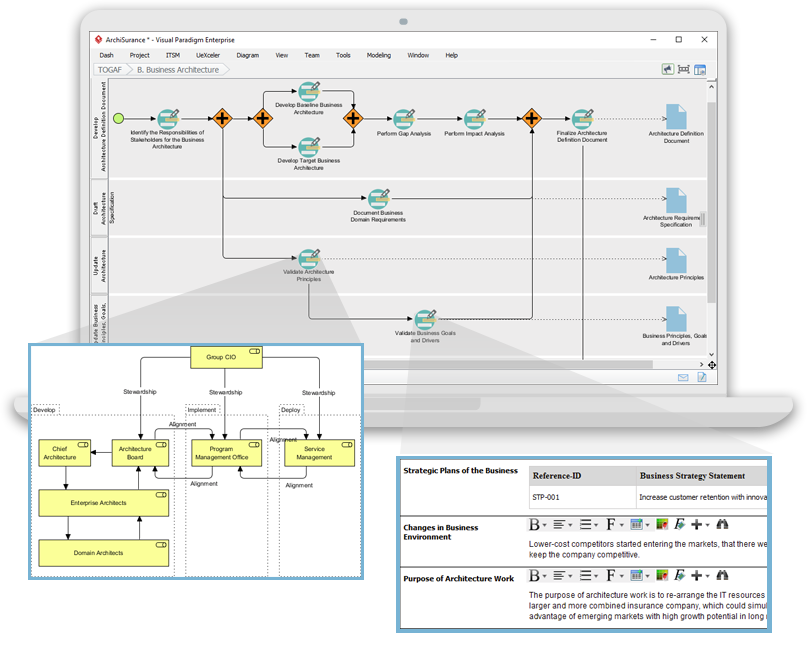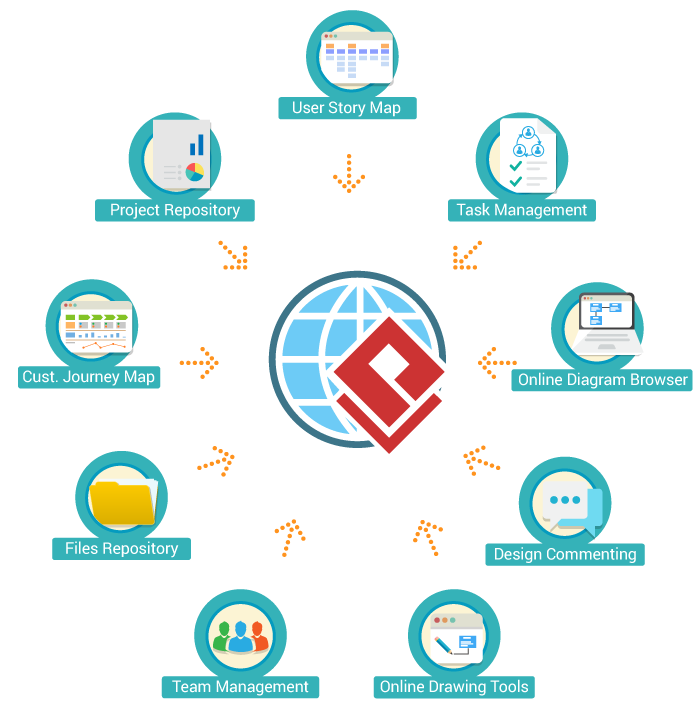Step-by-step Enterprise Architecture development with ADM guided process. Perform project management with PMBOK process map, user story mapping, visual modeling (UML, BPMN, etc) and more.
Ever thought of adopting TOGAF without upfront training investment? Our industry-unique TOGAF Guide-Through process guides you through the entire ADM and produces all the deliverables with ease. Steps outline:
That's it! Your work is automatically formulated into deliverable form, readily be exported as TOGAF ADM deliverable.


Agile development tools like user story map and sprint, Customer Journey Map and a wide range of project management diagrams
Essential development tools for modeling (UML, BPMN, ERD, DFD, etc), wireframing, code and DB engineering tools, etc
Highly affordable visual modeling toolset that supports UML, BPMN, ERD, DFD, EPC and more
